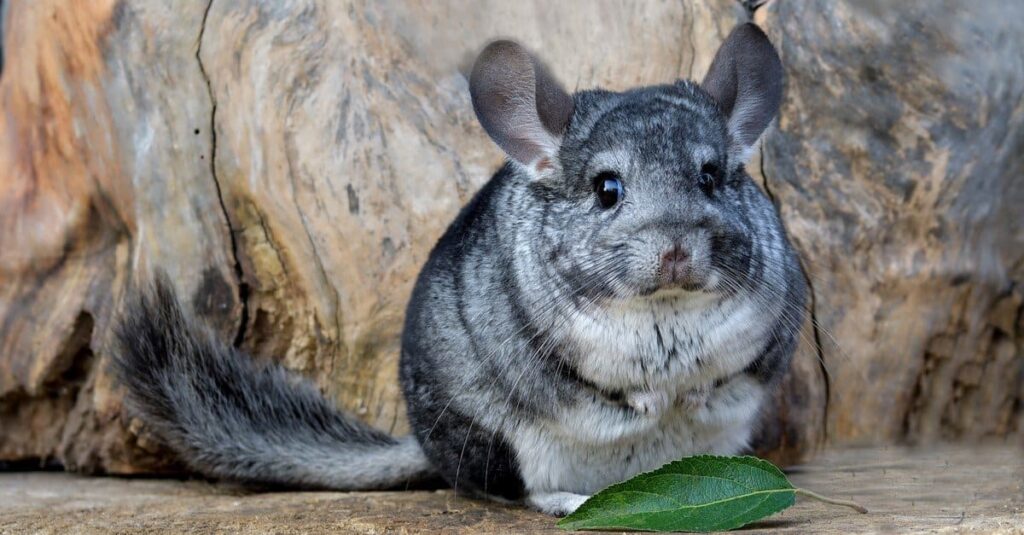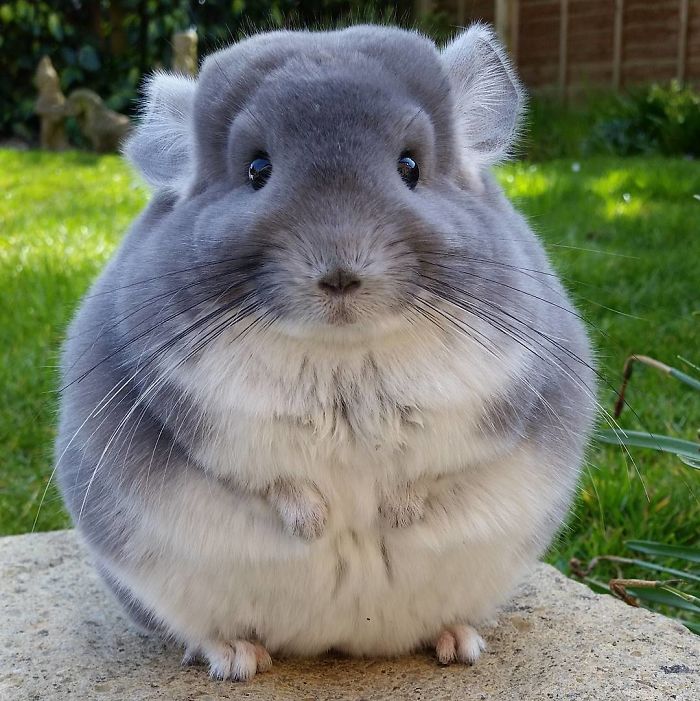Table of Contents
ToggleIntroduction
With their soft, luxurious fur and charming personalities, Chinchillas have become increasingly popular pets. These tiny rodents are native to the Andes Mountains in South America and have unique characteristics that make them intriguing and beloved companions for many animal enthusiasts.
One of the most crucial aspects to consider when bringing a chinchilla into your life is its lifespan. Understanding how long chinchillas live is essential for providing proper care and ensuring a happy and healthy life. In this comprehensive guide, we will delve deep into the factors influencing the lifespan of chinchillas, their average lifespan, and the best practices for promoting longevity and well-being.
Factors Influencing Chinchilla Lifespan
The lifespan of chinchillas can vary considerably, and several factors influence how long they live. These factors encompass genetics, diet, habitat, exercise, stress levels, and veterinary care.
Genetic Factors
Genetics plays a significant role in determining a chinchilla’s lifespan. The longevity of a chinchilla can influence oneself by its genetic predisposition to specific health conditions.
Some chinchillas may inherit a robust immune system and disease resistance, while others may be more susceptible to illnesses. Responsible breeding practices can contribute to healthier chinchilla populations and longer lifespans.
Diet and Nutrition
Diet is a critical factor in a chinchilla’s lifespan. Chinchillas are herbivores, primarily consuming hay, pellets, fresh water, and occasional treats like fruits and vegetables. Their health depends on them eating a healthy, well-rounded diet. A diet lacking essential nutrients can lead to health problems that may shorten a chinchilla’s lifespan. Dental health is also closely tied to their diet, as chinchillas have continuously growing teeth that need proper wear from their diet.
Habitat and Housing
A chinchilla’s lifespan is highly sensitive to its living conditions. Due to their sensitivity to heat and moisture, Chinchillas need to stay in a cool, dry, and well-ventilated environment. High temperatures and humidity can lead to heat stress and respiratory issues, harming their health. Chinchillas should be kept in cages with appropriate bedding, hiding places, and platforms for exercise and play.
Exercise and Activity
As very active creatures, Chinchillas need frequent exercise to maintain good health. Lack of physical activity can lead to obesity and various health issues, including heart problems and musculoskeletal disorders. Providing a spacious cage with climbing, jumping, and exploring opportunities can contribute to their overall well-being and longevity. Additionally, allowing chinchillas out of their cage for supervised playtime is essential for their mental and physical stimulation.
Stress and Social Interaction
Chinchillas are social animals that thrive on social interactions with their owners and other chinchillas. Their health and longevity may be adversely affected by stress. Factors such as isolation, sudden environmental changes, loud noises, or aggressive interactions with other chinchillas can lead to stress-related illnesses. A happy and stress-free chinchilla is more likely to live a longer and healthier life.
Veterinary Care
Regular veterinary care is crucial for maintaining a chinchilla’s health. Routine check-ups can help identify and address potential health issues early, increasing the chances of successful treatment. Dental problems, respiratory infections, and gastrointestinal issues are common health concerns in chinchillas. Owners should have access to a veterinarian with experience treating small exotic pets like chinchillas.
Average Lifespan Of Chinchillas

While the lifespan of chinchillas varies, there is a general range within which most chinchillas fall. On average, chinchillas live between 10 to 15 years when provided with proper care and a suitable environment. However, some chinchillas are open to exceeding this range and live into their late or early twenties.
Lifespan Variations
Several factors can lead to variations in chinchilla lifespan:
Genetics: As mentioned earlier, genetics can influence a chinchilla’s lifespan. Chinchillas with a strong genetic predisposition to health issues may have shorter lifespans, while those with robust genetics may live longer.
Diet and Nutrition: A well-balanced diet that meets a chinchilla’s nutritional needs can significantly impact its longevity. Inadequate nutrition can lead to health problems that may shorten their lifespan.
Environmental Factors: The quality of the living environment, including temperature, humidity, and cleanliness, can affect a chinchilla’s health and lifespan. Stressors in the background can also have adverse effects.
Exercise and Socialization: Chinchillas that receive regular training and socialization tend to be healthier and live longer. Physical activity and mental stimulation are essential for their well-being.
Veterinary Care: Regular veterinary check-ups and prompt treatment of health issues are critical for extending a chinchilla’s lifespan. Neglecting medical care can lead to the progression of illnesses.
Chinchillas in Captivity vs. the Wild
Chinchillas in captivity generally have longer lifespans than their wild counterparts. In the wild, chinchillas face numerous natural predators, harsh weather conditions, and limited access to consistent food sources. These factors contribute to a shorter average lifespan for wild chinchillas, typically 8 to 10 years.
In captivity, chinchillas receive protection from predators, consistent access to food and clean water, and a controlled environment that minimizes environmental stressors. As a result, they can live longer and healthier lives when provided with proper care.
Promoting Longevity And Well-Being In Chinchillas
There are a few must-dos if you want your chinchilla to live as long and as well as possible:
Provide a Nutritious Diet
Offer a diet primarily consisting of high-quality hay, such as timothy hay and chinchilla pellets. Fresh water should always be available. Limit treats to occasional servings of fruits and vegetables to prevent obesity and digestive issues.
Maintain a Suitable Environment
Ensure your chinchilla’s cage is spacious, clean, and well-ventilated. Keep the temperature and humidity levels within the recommended range (60-70°F and 40-60% humidity). The cage should not be exposed to direct sunlight or drafts.
Encourage Physical Activity
Offer plenty of opportunities for exercise within the cage, such as platforms, shelves, and safe toys. Additionally, allow supervised out-of-cage playtime to promote physical and mental stimulation.
Promote Social Interaction
Chinchillas are social animals and benefit from companionship. Consider adopting more than one chinchilla to provide them with social interaction. If you have only one chinchilla, interact with and bond with your pet.
Monitor Health and Seek Veterinary Care
Regularly check your chinchilla for signs of illness, such as changes in behavior, eating habits, or coat condition. A veterinarian with experience treating chinchillas should promptly address any unusual symptoms.
Maintain Dental Health
Chinchillas’ teeth continuously grow, so provide appropriate items to chew on, such as wooden blocks and safe chew toys. Regular dental check-ups are essential to ensure their teeth wear down correctly.
Minimize Stress
Create a calm and stable environment for your chinchilla. Avoid loud noises, sudden changes, and stressful situations. Provide hiding spots and safe spaces within the cage.
Practice Good Hygiene
Keep the chinchilla’s living space clean by regularly removing waste and providing fresh bedding. Maintain a pure food and water dish to prevent contamination.
Conclusion
Various factors, including genetics, diet, habitat, exercise, stress levels, and veterinary care, influence the lifespan of chinchillas. While the average lifespan of a well-cared-for chinchilla falls between 10 to 15 years, individual lifespans can vary considerably.
You can promote longevity and ensure your beloved pet’s happy and healthy life by providing your chinchilla with a balanced diet, a suitable environment, regular exercise, social interaction, and proper veterinary care. Responsible chinchilla ownership involves ongoing commitment and care to provide your furry friend with the best possible life.







